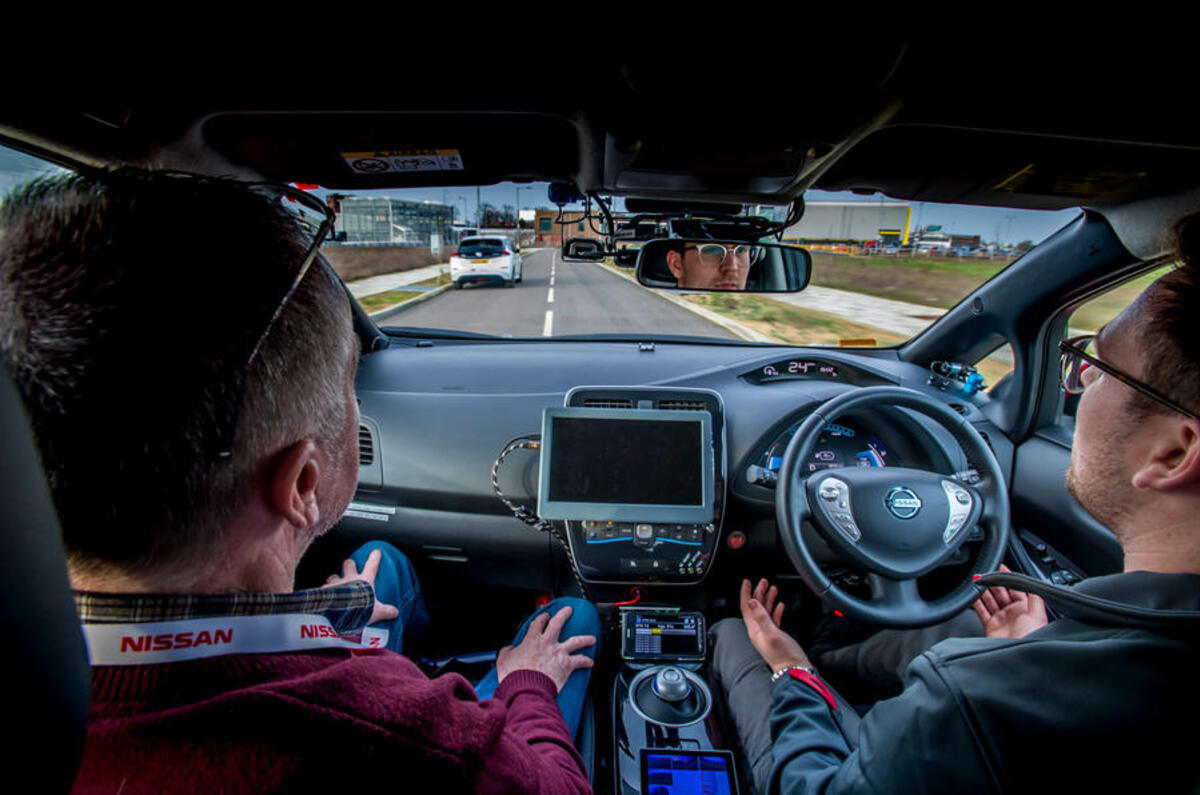The UK government has launched a call for evidence to prepare for the introduction of new Automated Lane Keeping System (ALKS) technology, which can entirely control a vehicle at low speeds, from early next year.
The Department for Transport (DfT) says that the system would enable vehicles to control themselves for extended periods of time without driver intervention, and has proposed allowing the use of the system at speeds of up to 70mph on UK roads.
The DfT is seeking views from industry on both the role of the driver and proposed rules on using the system, in order to shape the legislation required for its introduction. That includes asking whether cars with ALKS engaged should be legally defined as autonomous – which would make the technology provider, rather than the driver, responsible for the vehicle’s safety.
ALKS, which the DfT describes as a ‘traffic jam chauffeur technology’, can control both the lateral and longitudinal movement of a vehicle for an extended period without a driver intervening. Regulations for ALKS systems were approved by the United Nations Economic Commission for Europe (UNECE) in June, and the DfT estimated cars featuring the system could be offered in the UK from spring 2021 onwards.
The regulations approved allow for ALKS to be used at speeds of up to 37mph (60km/h), and are designed for use in slow-moving motorway traffic. It will only operate when a driver presses an activation button and environmental conditions allow. The driver must remain ready to regain control of a vehicle, and the system must monitor that drivers remain in their seat and attentive to road conditions. ALKS systems must also use a data storage system so that authorities can see the state of the vehicle when investigating any road traffic offences.
While similar to Advanced Driver Assistance Systems (ADAS) currently offered on many vehicles sold in the UK, those are designed to be used as aids, and drivers are not currently permitted to rely entirely on them. The ALKS regulations allow drivers to entirely delegate the task of controlling a vehicle.
Transport minister Rachel Maclean said: “Automated technology could make driving safer, smoother and easier for motorists and the UK should be the first country to see these benefits, attracting manufacturers to develop and test new technologies.”
Mike Hawes, CEO of the Society of Motor Manufacturers and Traders, added: “Automated technologies for vehicles, of which automated lane keeping is the latest, will be life-changing, making our journeys safer and smoother than ever before and helping prevent some 47,000 serious accidents and save 3900 lives over the next decade.”
The government’s call for evidence on ALKS can be seen here.
READ MORE
Autocar's manifesto: Our views on government's proposed 2035 combustion engine ban
Analysis: Why Volvo is redefining autonomous driving
Government launches 2016 consultation on autonomous vehicles








Join the debate
Add your comment
I've got a rental car in the US at the moment with lane keeping.
It works fine. Except when it doesn't. Whenever I hear of such things it reminds me of a test drive I took at home, the salesman accompanying me urged me to "steer towards the edge of the road" so that the lane keeping device could correct the car's trajectory. I pointed out I wasn't exactly in the habit of driving off course at any point over the previous 30 years of driving. I left that option unticked when I purchased a new version of the car. I still don't indulge in lane drift.
I've got a rental car in the US at the moment with lane keeping.
It works fine. Except when it doesn't. Whenever I hear of such things it reminds me of a test drive I took at home, the salesman accompanying me urged me to "steer towards the edge of the road" so that the lane keeping device could correct the car's trajectory. I pointed out I wasn't exactly in the habit of driving off course at any point over the previous 30 years of driving. I left that option unticked when I purchased a new version of the car. I still don't indulge in lane drift.
Bit iffy?
Not sure how this works with humans?!, I could see the idea if your driving into a busy Town or City, even taking you to a parking area saving the stress of driving round and round looking for a space, I still wouldn't be comfortable with a car driving itself at up to 70mph, even If you can intervene, and in that case, I can't see the point of using it then, plus, it's open to abuse,lazy drivers, bad drivers, any kind of driver we've all experienced,no, if it's going to automated, make when you come into built up areas.